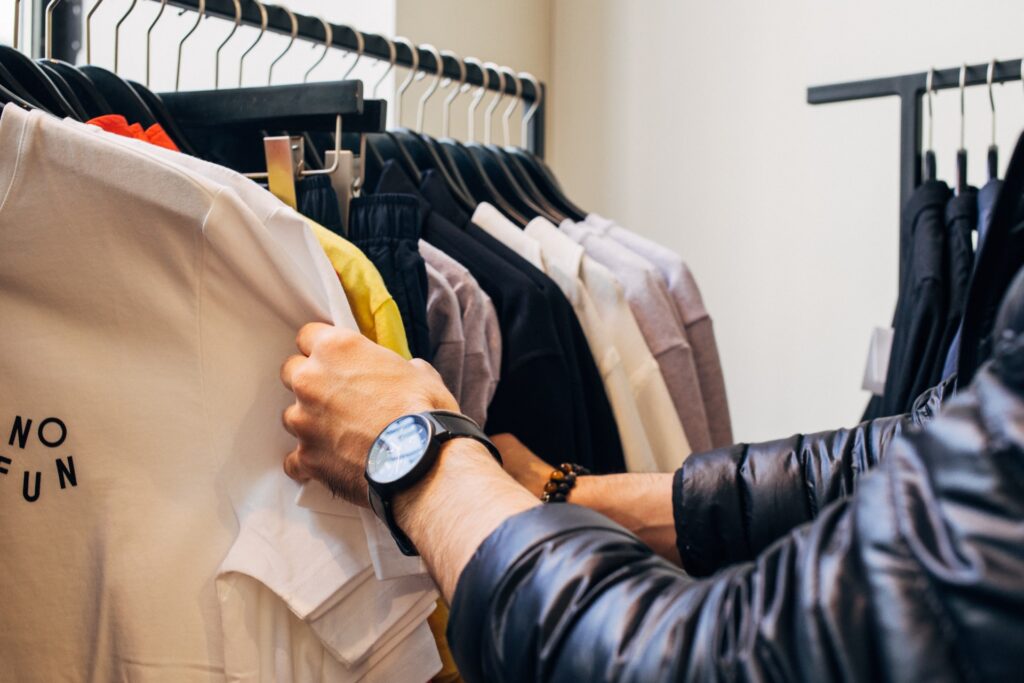Second-hand products are usually much cheaper than new ones and can save you a lot of money in the long run. But with the advantages of buying second-hand comes certain consumer disadvantages that can be avoided if buying commercially.
It’s always a matter of personal preference how you shop, but here are 7 reasons for and against buying second-hand.
Pros of Buying Second Hand
Environmentally Friendly
Buying second-hand saves resources, like packaging, and reduces emissions during the manufacturing process.
In fact, buying second-hand reduces our waste, water, and carbon waste footprint by almost 30%. Second-hand products don’t usually come packaged with unnecessary plastic or cardboard.
Unique Finds
Have you ever gone out for a loaf of bread and come back with a bag full of goodies instead?
Well, this is exactly what buying second-hand feels like. Imagine buying jewelry at a pawn shop and coming home with a unique piece of jewelry you couldn’t find anywhere else. Auction sites and pawn shops may have treasures that are better than anything you could buy brand new.
Good Quality for a Cheaper Price
No doubt about it, we are consumers who like to buy the newest, shiniest products as soon as they’re released. This means there is a surplus of appliances, clothes, and cars that are still in pristine condition.
Consequently, buying secondhand means you’ll find things that are almost as good as the new ones for a cheaper price.
Resource Efficient
When we reduce the number of throw-away products we buy, we reduce landfill waste, which prevents the excessive waste materials discarded around the earth and ocean.
Instead of throwing things in the trash, we can sell them second-hand to eliminate the continuous buying and selling process that has become common in our consumer day and age.
Benevolence
Charity shops are a great way to help those who need it the most. Today, charity shops offer more than dusty furniture and moth-eaten clothes.
They compete with high street stores and online suppliers to sell popular electrical appliances and luxury home goods. Most, if not all of their proceeds go to charity.
Cost-Effective
Whether it’s a cent or a dollar. Savings add up over time. Buying second-hand can even mean we’re getting high-quality items for a relatively cheaper cost. Due to the decreased value of brand new cars in their first few years, vehicles are the most commonly used items people buy.
Second-hand products, including used cars in montclair, are usually much cheaper than new ones and can save you a lot of money in the long run. But with the advantages of buying second-hand come certain consumer disadvantages that can be avoided if buying commercially.
Compared to buying new, buying a car that is a few years old can save you hundreds or thousands of dollars
Clean Conscience
Environmentally conscious consumers may be concerned about the environmental impact of buying new instead of used products because they know that this kind of consumer behavior is quite harmful to our planet.
Therefore, they might want to buy more used products rather than new ones in order to feel better and to have a cleaner conscience.
Cons of Buying Second Hand
Warranty and Guarantees
The majority of second-hand items, particularly electricals, don’t come with a guarantee or warranty, which might cause some problems if you find they’re not in full working order.
Some items may not be PAT (portable appliance testing) tested which can result in safety issues.
Hygiene Issues
You also risk not being able to guarantee cleanliness when buying second-hand items. It is impossible to know what you are getting unless you know how the previous owner maintained or cleaned the item.
This is more relevant than ever in the post-COVID era.
Decreased Lifespan
When purchased from a reputable refurbisher company, most previously owned items are usually durable. However, some items may not last as long as a brand new one.
Before buying second-hand, make sure you’re aware of any potential damage it has endured and determine if it will last.
Seller Scams
An expensive electrical appliance can be an exciting purchase. So to can an expensive piece of home furniture. investment. Is it possible to ensure that what you’re buying is actually genuine?
Nowadays, many online sellers refer to any pre-owned item as brand new and charge a substantial price for it. Trying to figure out what a piece is really worth may not be possible, and it might be better to buy a new one.
Time Consuming
When you head straight down the high street, you can easily find what you want. If you’re eager to purchase, buying second-hand may result in you trawling site after site, and you may not get what you want immediately.
Imperfect Condition
Generally, store-bought second-hand items are graded by condition: Poor, good, brand new, etc., and are often priced according to this grading system.
If you’re buying from an individual seller, you may be unsure of the quality of the item they’re selling. There have been cases of sellers misrepresenting their products leaving buyers without the option to return them.
No Returns Policy
Second-hand items might develop defects or not function properly, and the manufacturer can’t always fix them. Or even worse, can refuse to accept returns leaving you with a hole in your pocket and a faulty item.
When buying second-hand you can’t always be sure if the previous owner has had problems with it.

There has been an increase in the popularity of buying secondhand products in recent years. Environmental problems are becoming more widely known and many people want to take positive steps to protect the environment.
